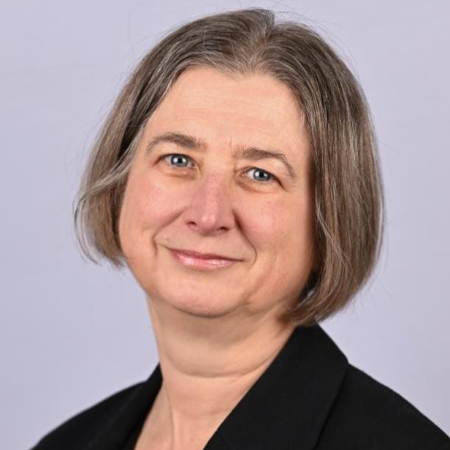Feel the vibes from TXF Global Export Finance Lisbon 2023
TXF Global Export Finance Lisbon gathered the higher echelons of the ECA community last week in a seminal event aimed at amplifying and improving the export finance offering to help meet SDGs and the race to net zero emissions.

“Everything Everywhere All at Once” is how one delegate at TXF Global Export Finance jokingly referred to me at our spectacular 10 year anniversary event in Lisbon. In keeping with the festival theme of the whirlwind two days, rather than ‘takeaways’ here are some ‘vibes’ from the event.
Throughout the conference there was general satisfaction expressed in relation to the changes that have been announced on the OECD Arrangement on Export Credit Financing. These changes are set to come into force on 15 July.
“Hats off to the guys that put the documentation together for the OECD modernisation changes. It has been a seismic eight for the modernisation, and a real landmark,” says one delegate. Broadly, renewables-related deals now have a tenor of up to 22-years. Progress. But while the tenor on social infra deals has moved from 10 to 15-years, many are disappointed that it does not go far enough.
Developed market governments and ECAs need to pressurise the OECD to push out tenors on social projects, particularly in Africa. The perception that the ‘S’ (social) in ESG has been sidelined disappointed most in the industry and certainly at the conference where disquiet was highly evident. As one delegate says: “Social infrastructure and hospitals need to be included in the OECD CCSU (climate change sector understanding). Green manufacturing has got 22 years, but not hospitals!”
Nonetheless, there was warning from one European ECA head against pushing out maximum tenors in all markets from 15 to 22 years as a matter of course, in part as a response to China, could risk a ‘race to the bottom’, and that it would be a mistake totally to lose the link of using money earned from projects to pay back the loans for projects being divorced in long tenor funds being used for general purposes. “Let’s not do that,” the ECA head says.
Heed calls for a just transition
The friction between the energy transition and economic development in emerging markets like Africa was also an issue that threaded itself throughout the event. Time, resources, and financing – including ECA and DFI support – are paramount to realising the race to net zero emissions. But Africa only accounts for 3% of global emissions and regions with higher emissions – including Asia and North America – need to do more to support the continent’s access to its energy sources.
Oil and gas on the continent (particularly the latter) will be necessary for a just transition – but ECAs have exited the oil sector. And Africa needs to be able to use ECAs’ resources to harness its domestic natural resources, but, as several speakers point out, they cannot realise both visions, and attempts to turn off the funding taps ‘just aren’t just’.
In another standout trend, there is an overall vibe that tied export credit financing has become less relevant over the past few years. “Untied ECA financing has become much more relevant - largely because it directly addresses the market needs,” says one speaker.
The use of ‘untied’ facilities took off through the COVID years with ECA support for national industries. And this has now been expanded further with prominent ‘untied’ facilities for the supply of industrial critical minerals and gas for German industry through Euler Hermes transactions with trading house Trafigura in late 2022. ‘Untied’ financing is even now in the new policy document of Euler Hermes, launched on 13 June. SACE, Kexim, K-Sure and JBIC also have been active in such deals.
Oneness: Collaboration continues
SACE, for instance, is using more untied structures (outside of the OECD Consensus) and views its collaboration model in terms of “partners in pleasure rather than in crime”. “Co-design” was the approach – and simplification aimed at “looking at what our companies are looking for” and “education to export.”
The language of cooperation was evident throughout the conference, starting with the keynote corporate session delivered by Vishal Gulati, CFO of GE EFS, which focused on the company’s evolution to a model based on partnerships and on programme risk, not just project risk.
Sustainability is now firmly entrenched within the export finance sector too, and has made significant progress in the last couple of years – but more needs to be done. Increased focus now also needs to be placed on biodiversity and the blue economy to try and halt the damage being done to the rivers, seas and oceans – something that was highlighted by the keynote address by Portugal’s Minister of Economy and Maritime Affairs, António Costa Silva, focusing on international trade and climate action, and the country’s bold plans on renewables and its blue economy hub set up in an old refinery.
In future much more scrutiny can be expected on ECA-backed projects that impact forests and oceans. “You can’t look at climate change in isolation – we need to look at the whole supply chain. A lot of upskilling is needed!” That upskilling will only be achieved if corporates, banks and agencies start using more expertise from external sustainability and environmental services providers.
Empowering Women in Export & Infrastructure Finance
TXF Global Export Finance in Lisbon saw the launch of the Women in Export & Infrastructure Finance initiative which looks to drive further the involvement of women in the sector. Day two of the conference began with more than 100 people attending this breakfast briefing and roundtables/workshops session. As Michal Ron from SACE says: “A great project to create connections and promote the value of women within our industry: teaming up, coming forward, promoting a new vision and new ways to make things happen, are just some of the needs and objectives we want to start from.” Thanks to Maria Cristina Bergomi, Aida Topcagic, and our own Katy Rose, for leading and driving this initiative.
Joining the CPRI Club – confident in capacity and evolution
The evolution of the credit and political risk insurance (CPRI) industry over the past decade has been strong – and as Charles Berry, founding director of BPL (which set up its brokerage 40 years ago and estimates it has a 15% share of the market) says “the market for non-marketable risk is thriving”, and that in the past 10 years, cover has become longer and larger, with MLT representing 67% of its cover (from 50%).
Interestingly, the risk profile has moved from a majority focus on emerging markets, towards developed markets. For instance in the ‘old’ world, ‘new’ markets such as US real estate and shipping are back in focus. But the types of risks being covered in the past 10 years now also include climate, AI, new technology, biodiversity and water security.
Nonetheless, the private market could still do with more capacity, and there has been a move in demand from ECAs towards whole portfolio syndication. Insuring and reinsuring other ECAs’ portfolios is certainly a rising trend.
And CPRI claims are less of a concern
Positive market sentiment towards CPRI claims abounded. The claims can has been kicked down the road long enough not to rear its ugly head. A crisis had potentially been looming in the wake of the pandemic but now market sentiment - from a panel of underwriters and brokers - reveals there’s insurance capacity to absorb an uptick in claims despite the application for cover ballooning.
First dedicated export finance fund launches
TXF Global 2023 was host to the launch of the first dedicated export finance fund. Acre Capital's inaugural fund concentrates on climate aligned social infrastructure for sovereign borrowers in Africa. The fund is unique as Acre Capital will cover the 15% downpayment needed for an export credit, thereby unlocking $5.6 for every $1 invested, whilst helping to attract much needed impact and development bank capital into the export credit market.
The fund offers up 7-year average life tenors (without PRI) – with the option to build in grace periods. In short, it is able to unlock investors to the asset class in a bid to deliver and maintain infrastructure post- as well as pre-construction. That should mean responsible money with market rate returns with an ambition to complement, not compete with public and private funding sources.
At the event, banks and ECAs signed MoUs with Acre Impact Capital. Acre’s backers include a mix of development bank, impact investor and African FIs including European Investment Bank, Industrial Development Corporation South Africa, PIDG, FSD Africa and Investec.
And finally, most of the ECA head hotseat interviewees were asked a music-related question (it was a festival vibe after all). The most unexpected answer (to me) came from Tim Reid, CEO of UKEF – the favourite gig he’s ever been to? Taylor Swift in Hyde Park. It’s a surprising industry after all.
Become a subscriber today for unrestricted access to the best export, trade and commodity finance analysis available.
Click here for information on the different packages available for you and your team
Exclusive subscriber-only content published last week:
Nepal invites bids for road projects
Nepal - via its ministry of physical infrastructure development - and the ADB have invited bids from developers to update three roads in the South Asian country.
DFC insures Gabon's debt-for-nature swap deal
Gabon is currently in talks with The Nature Conservancy (TNC) for a $500 million debt for nature swap that would channel financing into a marine conservation project.
Pioneer AfDB hybrid capital bond to begin non-deal roadshow
AfDB’s first hybrid capital bond is being shown to potential investors at a non-deal roadshow beginning in the coming weeks.
Haas appointed as BayernLB's syndication head
Thomas Haas has been appointed to lead BayernLB’s debt syndication department, succeeding Florian Hummel.
UKEF is ready for a reset with a new CEO in office and a new set of priorities, including a focus on opportunities for green exports. But how can ECAs ensure that their low-carbon investments are properly monitored?





